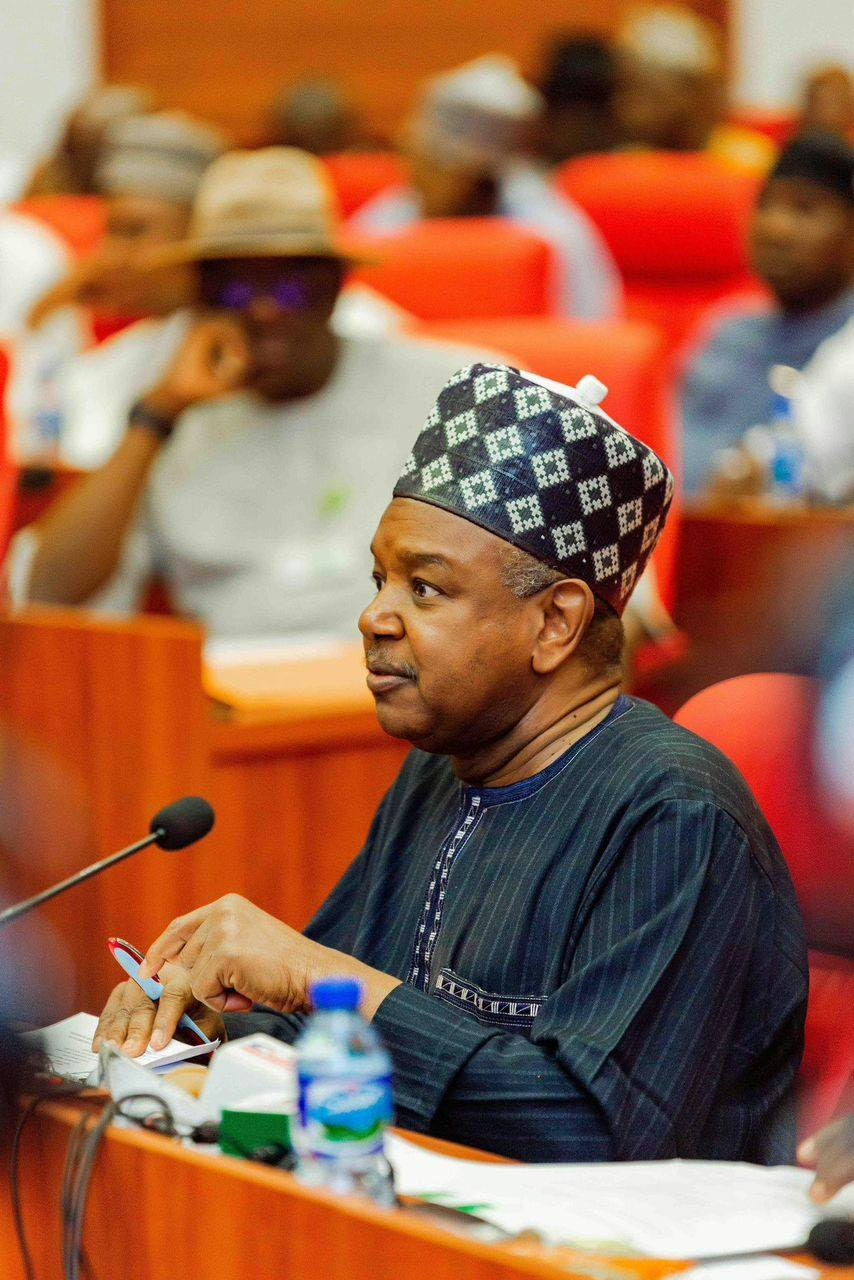

Bagudu: How We’ll Realise Our Revenue Projection
The Minister of Budget and Economic Planning, Senator Abubakar Atiku Bagudu, expressed confidence that the Federal Government will achieve its N36.35 trillion 2025 revenue target.
The minister spoke at the National Assembly Joint Committees on Finance hearing on the 2025 Appropriation Bill and expressed confidence in the anticipated gains of President Bola Tinubu’s administration’s economic reforms, which he said had begun to bear fruit.
He said the combined effects of removing fuel and foreign exchange subsidies boosted the three levels of government revenue, which he explained had begun to manifest in October of last year.
He said the administration expected an upward revenue trajectory with the savings from removing fuel and forex subsidies.
The minister explained that President Bola Tinubu had directed all revenue-generating MDAs and Government-Owned Enterprises to ramp up their operations to bring more money to the government’s purse.
Bagudu pointed out that the nation’s treasury would swell with the government’s determination to ramp up oil production at a reduced cost.
Following the National Assembly’s approval of the 2025 Medium Term Expenditure Framework and Fiscal Strategy Paper, President Bola Tinubu presented the 2025 Appropriation Bill to the National Assembly in December last year, proposing an expenditure of N49.74 trillion.
The bill assumed 2.06 billion barrels per day production at $75, N1,500/$ exchange rate, 15.75% inflation and 4.6% GDP rate.
Despite a 13.08 trillion deficit, the minister told the federal legislators that the Federal Government was confident it would generate the revenue to fund the budget, explaining that the administration would leverage its experience of the 2024 budget to achieve its target.
He said, “The 2024 budget is this administration’s first full-year budget, and lessons learned from 2024 have formed the basis of the assumptions in 2025.
“The principal among those assumptions and lessons was the removal of the fuel subsidy and its effect on revenue and expenditure, the removal or deregulation of the foreign exchange market and its impact on both government revenue and spending, and other price-distorting issues, such as electricity, which has not been fully dealt with.
“All the major, bold, and courageous steps taken with the support of the National Assembly are intended to generate more revenues for the three tiers of government, correct distortions in the economy, and improve expenditure efficiency so that we can ensure that the revenue generated goes a long way.”
However, Bagudu said 2024 was characterised by different revenue profiles, explaining that only in October did the full effect of removing fuel subsidies begin to show up in the federation account revenue.
He assured the lawmakers that despite the hangover effects of the subsidy regime, the administration had learnt valuable lessons from implementing the 2024 budget that made it confident that it would achieve its 2025 revenue projection.
Bagudu said, “Because we have seen all the elements and learned many lessons, with the support of the National Assembly, the Budget Office was able to guide and rely on the best estimates, allowing us to make revenue assumptions based on 2.06 million barrels per day.
“The Minister of State Petroleum and the Federal Executive Council even said they hope we can do more. And Mr. President appreciates the security efforts and the fact that we have to challenge the management of institutions to do better, as well as the reduction of importation. These are all things that significantly affect the revenue profile.”

Leave a Reply